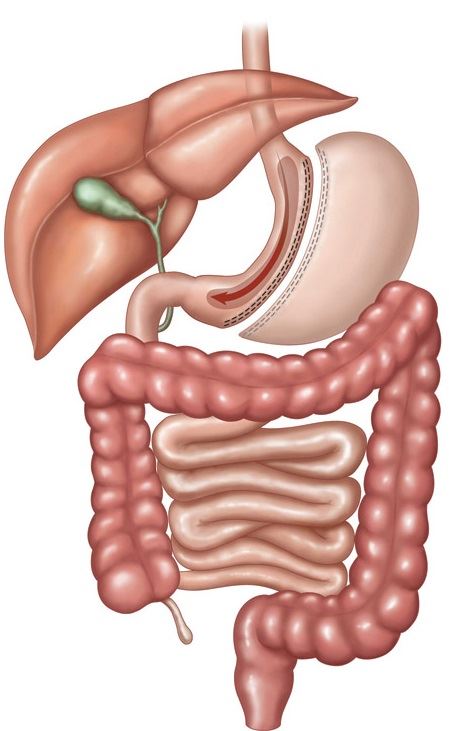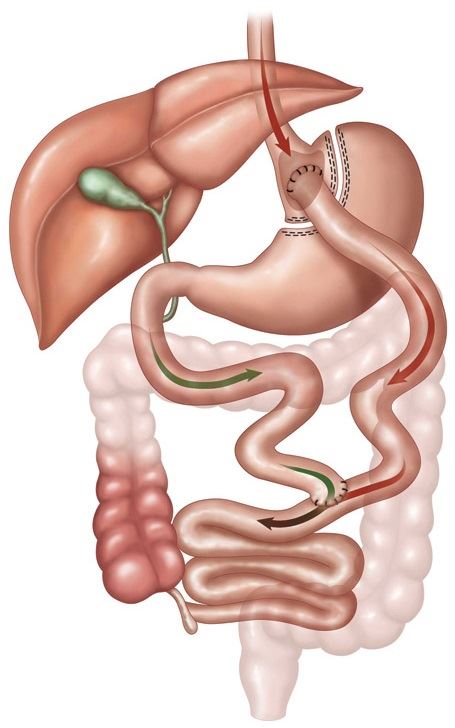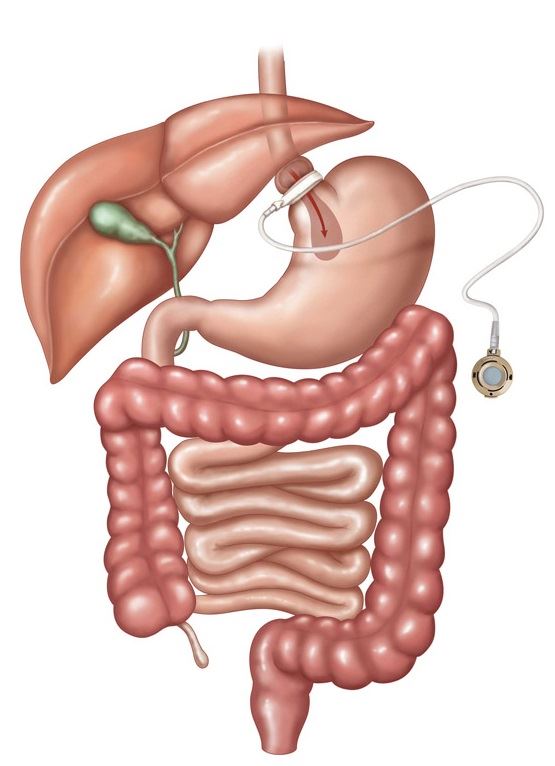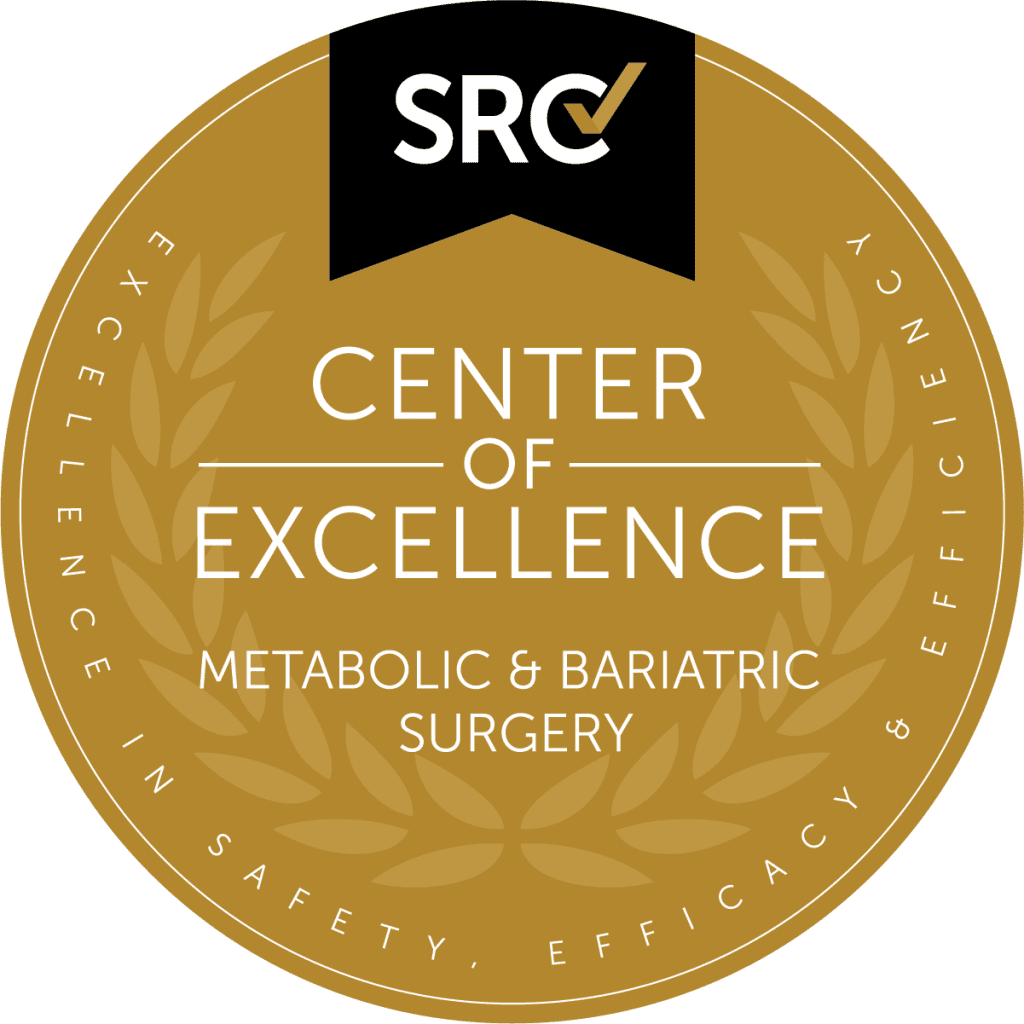At the Bariatric Center at CentraState, we specialize in “afters,” providing everything you need to help you achieve sustainable weight loss: fellowship-trained, board-certified surgeons offering minimally invasive gastric sleeve, gastric bypass, and bariatric revision surgery, experienced bariatric dietitians, specially trained nursing staff and access to a bariatric fitness program to help you ease into the physical activity.
IS WEIGHT LOSS SURGERY RIGHT FOR YOU?
Are you wondering if you are a candidate for bariatric surgery? Get answers to your most pressing questions from a fellowship-trained bariatric surgeon. During the seminar, you will learn about the different types of weight loss surgery options, benefits and risks of each type of surgery, and what to expect after surgery.
WEIGHT LOSS SURGERY OPTIONS
 Gastric sleeve surgery is also referred to as sleeve gastrectomy. In this minimally-invasive procedure, surgeons re-form the stomach into a narrow banana shape by stapling off a large section of the organ. Gastric sleeve allows patients to lose weight by restricting the amount of food they can eat and preventing production of a hormone produced in the gastrointestinal tract associated with hunger.
Gastric sleeve surgery is also referred to as sleeve gastrectomy. In this minimally-invasive procedure, surgeons re-form the stomach into a narrow banana shape by stapling off a large section of the organ. Gastric sleeve allows patients to lose weight by restricting the amount of food they can eat and preventing production of a hormone produced in the gastrointestinal tract associated with hunger.
To learn more about gastric sleeve surgery, request an appointment.
 Through Roux-en Y gastric bypass (weight loss) surgery, surgeons change the configuration of the stomach and small intestine to reduce the amount of food patients can eat and digest. For patients who meet certain criteria, gastric bypass surgery can be performed using minimally invasive (laparoscopic) techniques. This approach can potentially reduce blood loss, trauma to muscles and other tissue, risk of infection, length of stay in the hospital, and pain and recovery time.
Through Roux-en Y gastric bypass (weight loss) surgery, surgeons change the configuration of the stomach and small intestine to reduce the amount of food patients can eat and digest. For patients who meet certain criteria, gastric bypass surgery can be performed using minimally invasive (laparoscopic) techniques. This approach can potentially reduce blood loss, trauma to muscles and other tissue, risk of infection, length of stay in the hospital, and pain and recovery time.
The typical hospital stay for gastric bypass surgery is three days. Patients generally are able to return to work after a few weeks of recovery.
To learn more about gastric bypass surgery, request an appointment.
In most cases, bariatric surgery is performed using advanced minimally invasive laparoscopic techniques, including robotic assisted surgery. With laparoscopic procedures, surgery is performed through about four or five small incisions—causing less trauma to tissue. Robotic-assisted surgery may be considered for is patients who suffer from Class 3 (or severe) obesity, thanks to the increased vision and dexterity that the system allows. The potential benefits of minimally invasive surgery include:
- Less pain
- Faster recovery
- Less scarring
- Quicker return to normal activity
- Fewer complications
To learn more about robotic bariatric surgery, request an appointment.
 In the adjustable gastric banding procedure, surgeons place an adjustable, silicone band around the upper part of the stomach to reduce the amount of food the stomach can hold. The adjustment process can be done as an outpatient procedure in a matter of minutes and helps drive the rate of weight loss. This less invasive approach does not involve stomach stapling, cutting, or intestinal rerouting. Adjustable gastric banding is the only adjustable and reversible surgical weight loss option currently available in the United States.
In the adjustable gastric banding procedure, surgeons place an adjustable, silicone band around the upper part of the stomach to reduce the amount of food the stomach can hold. The adjustment process can be done as an outpatient procedure in a matter of minutes and helps drive the rate of weight loss. This less invasive approach does not involve stomach stapling, cutting, or intestinal rerouting. Adjustable gastric banding is the only adjustable and reversible surgical weight loss option currently available in the United States.
To learn more about gastric band surgery, request an appointment.
Metabolic & Bariatric Surgery Center of Excellence
The Bariatric Center at CentraState is a Center of Excellence in Metabolic and Bariatric Surgery, a designation that shows a commitment to providing a comprehensive, safe surgical solution to obesity. CentraState’s multi-disciplinary team supports patients through every facet of the surgical weight loss process with physicians, nurses and fitness experts who are specially trained in the treatment of bariatric patients.

BARIATRIC PRE-OPERATIVE CLASSES
This online program is designed to prepare individuals scheduled for bariatric surgery. We’ll cover preadmission testing, what to expect during your hospital stay, how to avoid complications and setbacks following surgery, nutrition protocols and how to find resources that support your “after”.






